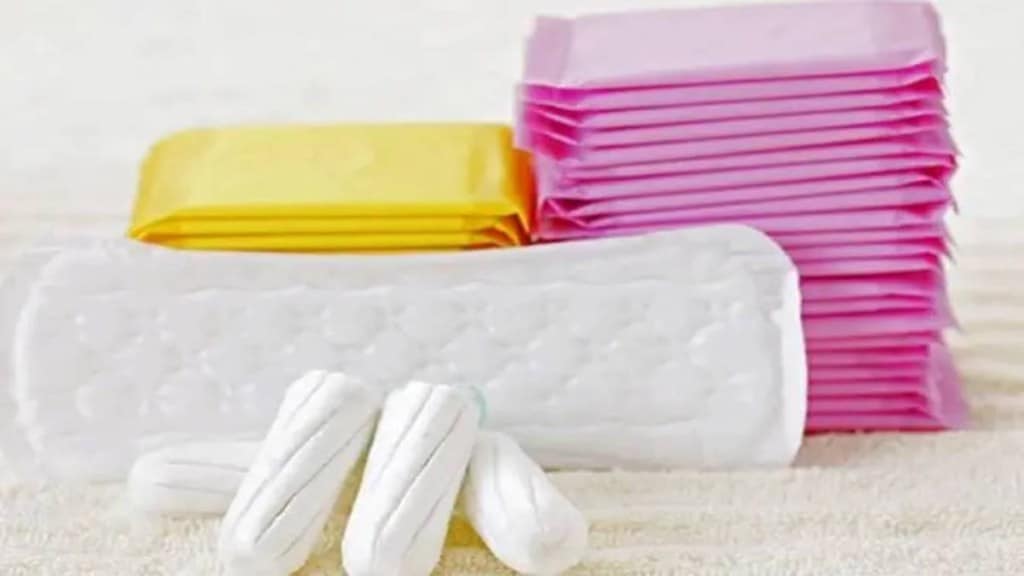By Sonali Maheshwari
The history of menstrual hygiene management (MHM) in the country is interesting to track. Late eighties and through nineties was a time of silence around menstruation, very limited access to facilities and management product choices, missing from Govt. agenda. Early 2000 menstrual hygiene management started getting attention, NGOs started awareness and education around the topic, and got the attention of international agencies. Turning point started from 2005 to 2010 with launch of National Rural Health Mission, ASHAs made responsible for MHM, variety got added in management product range, SHGs started manufacturing low-cost disposable napkins, and the topic gained media attention. Since 2010 and till present menstruation and menstruation hygiene management has been getting stronger and stronger in Govt. agenda. Initiatives like Nirmal Bharat Yatra, prioritization of sanitary napkins under RMNCH+A through RKSK program. Vending machine and incinerators being promoted under Samagra Shikhsha Abhiyaan, scrapping of tax on sanitary napkins, launch of biodegradable sanitary napkin called ‘Suvidha’ under the Pradhan Mantri Bhartiya Janaushadhi Pariyojana (PMBJP) and availability at very low rates (Rs 2.50) at over 3,200 Janaushadhi Kendras across India and several other guidelines and schemes being issued launched by other line departments.
Though this journey shows how in India MHM has come a long way while experiencing different phases, reaching milestones from deep, uncomfortable, shameful silence to a time of dedicated programming on making sanitary pads available to girls and women. And undoubtedly there is increased momentum from international donors, the national government, small and medium sized enterprises, and NGOs to address problems related to menstrual health yet incidences like- school principal following practice of segregating menstruating girl students while having discriminating norms and practices in Bhuj district-based school; 2020; and recent case of sororicide in Maharashtra, Thane district; 2023. These tragic happenings compel us to reflect back to the fact that this journey largely has been focussed on products and improving awareness about menstruation mainly among girls and women that are too cursory. We have failed to- educate enough and remove the taboo shrouded in secrecy, suppressed by silence and shame. Opportunities to address menstrual health more holistically are missing which is- leading men to continue with insensitive practices pertaining to their limited and low level of menstruation education. And second furthering the stigma that prevails around menstruation as well as sexual awareness which is a key role player and towards a possible crime.
If we see the 17 Sustainable Development Goals (SDGs) also, none of them mentions Menstrual Health & Hygiene directly, however Menstrual Health & Hygiene has been an important component in operationalizing relevant SDGs, such as SDG 3 (Good Health &Well-being), SDG 4 (Quality Education), 5 (Gender Equality) and 6 (Clean water and sanitation), SDG 8 (Decent Work and Economic Growth) & SDG 12 (Responsible Consumption & Production). This indicates an already overdue need to assess the importance of menstrual health and hygiene (MHH) towards enabling progress across the entirety of the 17 SDGs.
Overdue need is also reflected in the data sets- globally, on any given day, more than 800 million women between the ages of 15 and 49 are menstruating around the world. Even in developed countries like the United States, research suggests that girls are not very knowledgeable about menstruation, and that menstrual education continues to provide girls with mixed messages, such as: menstruation is a normal, natural event, but it should be hidden. A study in South Asia found that 33% of girls in school had never heard of menstruation prior to experiencing menarche, and 98% of girls were unaware that menstrual blood came from the uterus. International Journal of Clinical and Surgical Advances highlights in India, once girls reach menarche there is significant evidence indicating increased restrictions to their mobility and agency. Over 20 million girls, a shocking number, in India drop out of schools once they start menstruating and lose their right to education owing to a normal physiological phenomenon. Additionally on the health front, it is found that two-thirds of the total number of women who die of cervical cancer had poor menstrual hygiene. And this is one of many other related health indicators.
These facts all together are a stark reminder of the urgent need for greater awareness and education about menstruation health, hygiene and management at all levels of the ecosystem. Reinforcement of the importance to treat women and girls with sensitivity, respect and dignity while allowing them to make informed choices to deal and manage the menses without any discrimination. And to break the myths and stigma acting as barriers for Menstrual Health & Hygiene the measures have to go beyond sanitary napkins and sanitation facilities. Therefore, it is important to broaden the MHM intervention’s scope and include men and influencer’s also as key target groups and with outcomes to be as mindset shift from regressive to progressive and inclusive and societal outlook change from shame to normal and acceptance.
Let’s share this responsibility and start acting on it within our families, communities, networks, peers. This investment will benefit the girls today, the women they will become tomorrow, and the next generation. Sensitive and comfortable chain of social and behaviour change communication dialogues have potential to go a long way in limiting the incidences of evil / abuse / cruelty from the people closest to menstruating women or girls while “Making menstruation a normal fact of life by 2030.”
The writer is a social development professional with two decades of professional experience. She has extensive experience in curating and leading behaviour change and policy shaping interventions, focusing developmental themes such as Women Empowerment, Gender Equality, Child Safety & Maternal Child Health & Nutrition and worker wellbeing.
Disclaimer: Views expressed are personal and do not reflect the official position or policy of Financial Express Online. Reproducing this content without permission is prohibited.

